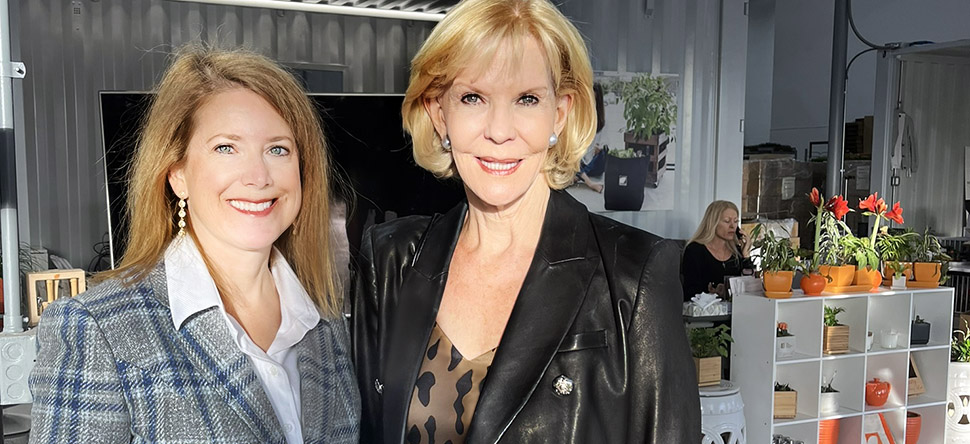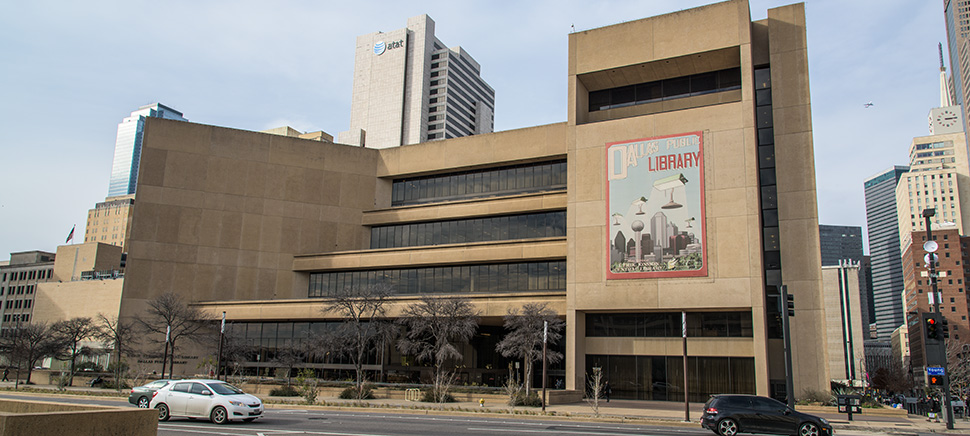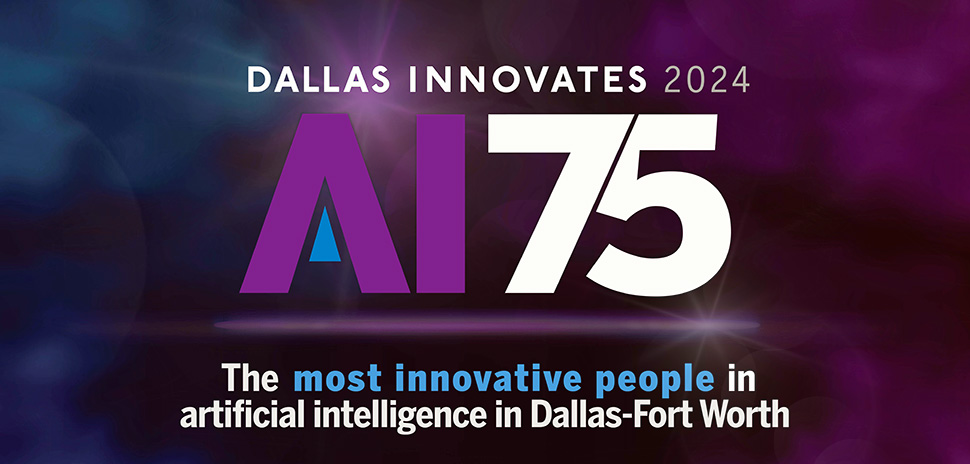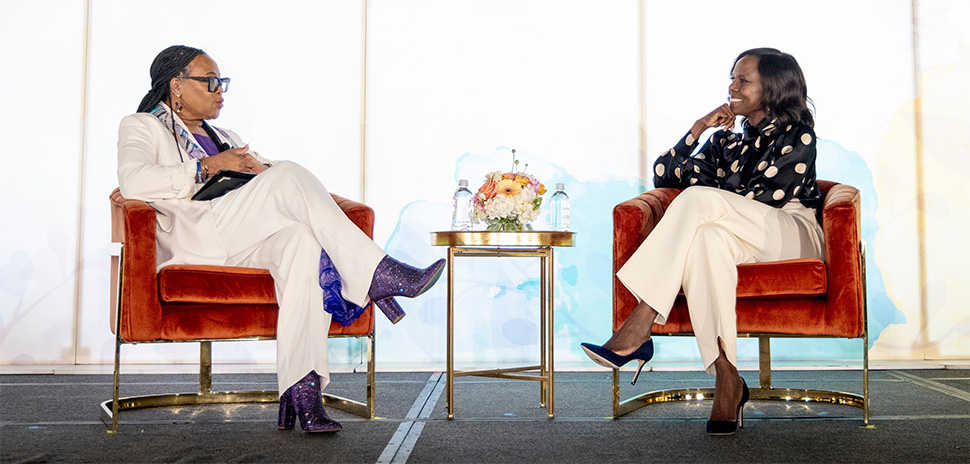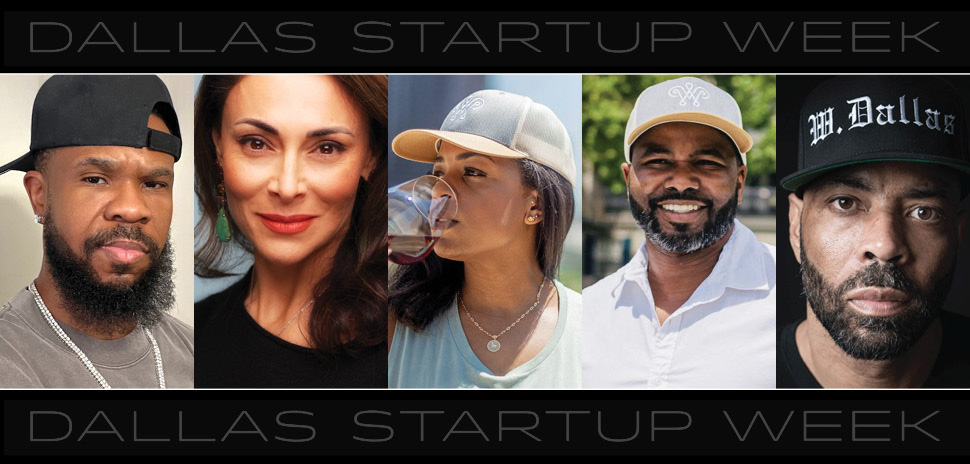When Minnesota’s Digi International acquired Dallas-based Internet of Things company Haxiot for an undisclosed sum in 2021, part of the credit for Haxiot’s successful exit could be claimed by a national angel investment network called Golden Seeds.
A pioneer in investing exclusively in women-led ventures, with a chapter in Dallas, Golden Seeds had led a seed funding round for Haxiot in 2018. The IoT company was co-founded in 2015 by married couple Youyi and Nick Kitson, offering end-to-end Long Range Wide Area Network (LoRaWAN) wireless technology.
Youyi’s involvement made Haxiot eligible for early-stage funding by Golden Seeds, one of the first seed-money networks to provide capital to female-led businesses at scale.
Now marking its 20th anniversary, the New York-based angel group has invested more than $180 million in more than 250 companies over that period. Those companies have gone on to raise more than $2 billion.
Golden Seeds, which has about 285 high-net-worth members (including men) in 27 states, is organized across eight active “chapters”—including the Dallas chapter and one in Houston. The others are in Arizona, Atlanta, Boston, New Jersey, New York, and Silicon Valley.
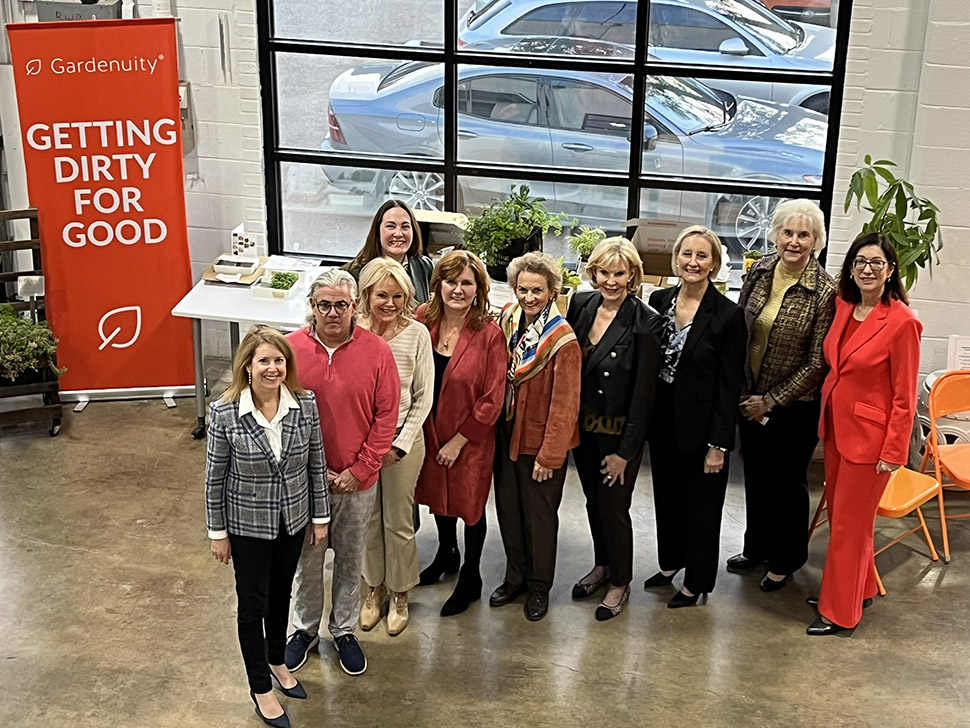
At Golden Seeds’ recent 20th anniversary event at Gardenuity, current and former members of the Dallas chapter attending were, from left, managing director Laura Baldwin, John Wilson, Maribess Miller, Dani Cocanougher (back), Anna Minto, Carol Nichols, co-CEO Loretta McCarthy, Louise Kee, Jan Norton, and Michele Powell. [Photo: Golden Seeds]
‘Returns are better’ for women-led companies
Today, according to Golden Seeds co-CEOs Jo Ann Corkran and Loretta McCarthy, women represent 40% of all angel investors and 31% of angel-funded companies. That’s up from 5% and 3%, respectively, in 2004, when the organization was founded.
Explaining their focus on funding women-led businesses, Corkran and McCarthy point to studies showing that companies led by women or gender-diverse executive teams have better financial results than their peers.
Says Laura Baldwin, managing director of the group’s Dallas chapter: “We want to invest in women because it’s the right thing to do. We want to invest in women because we think the returns are better. And we all want to make money.”
In addition to capital, Golden Seeds provides extensive advice and other support to companies, including putting its members on company boards.
The group also runs something called the Golden Seeds Knowledge Institute, a nine-part training program for budding investors.
From $100,000 to more than $1 million
Like all the organization’s 285 members, each of the 10 or so who belong to the Dallas chapter have the ability to propose candidates for Golden Seeds funding.
Among other criteria, eligible companies need to have a scalable business model; revenue; and at least one woman at the C-suite level with power, influence, and a “fair” amount of company equity.
Candidate-companies are “screened” by one of the group’s largest chapters—New York, Boston, or Silicon Valley—to determine whether they’re eligible for investment. The organization says it annually receives as many as 400 applications, up to 30% of which go through this screening process.
A “deal memo” on each company making it through the process is then posted on the Golden Seeds website, and members decide individually whether to pony up. The minimum for each member to invest is $25,000 per year.
If at least 10 Golden Seeds members agree to participate in a funding, companies frequently can receive from $100,000 to more than $1 million over time.
Nationally, Golden Seeds says it makes 12 to 15 new investments each year, plus 15 to 18 additional investments in companies it had put money into previously.
Getting to know women entrepreneurs
Even if women-led startups don’t meet all the Golden Seeds investment criteria, they’re welcome to attend the Dallas chapter’s once-a-month “office hours” sessions, where up to four companies are seen, Baldwin says.
In fact, she adds, she’d be grateful if more female businesses did so. More investing members for the Dallas chapter would be nice, too.
“Lately, the companies that come to office hours are pretty early,” she says. “I would like for us to find some companies that are a little bit later-stage and ready for us to invest in. I know they’re here in Dallas somewhere. I just can’t seem to find them.”
The office hours sessions are “mostly to give them some feedback, because the majority of them don’t meet our criteria, and would not be eligible for funding,” Baldwin adds. “It’s more of a way for us to get to know the women entrepreneurs, and the community.”
And, who knows: With persistence, some not-yet-eligible founders who attend office hours may snag Golden Seeds funding down the road.
In fact, that’s just what happened with Haxiot, the IoT company that was acquired in 2021.
“Haxiot came to office hours, and they were too early,” Baldwin recalls. “We said, ‘Keep in touch, you know, let us know how things progress.’ They came back a couple years later and said, ‘OK, we’ve done ABC.’ They applied and went through the process. They had 10 investors and then they exited, and everyone was pretty happy.”
![]()
Get on the list.
Dallas Innovates, every day.
Sign up to keep your eye on what’s new and next in Dallas-Fort Worth, every day.

